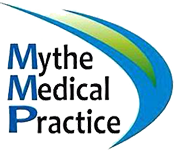Hay fever is a common allergic reaction which occurs at particular times of the year.
What Are the Symptoms?
- Itchy eyes/ throat
- Sneezing, blocked/runny nose
- Watering, red eyes (allergic conjunctivitis)
- Headaches, blocked sinuses
- Shortness of breath
- Tiredness
- The sensation of mucus running down the back of the throat, which can also be a symptom, is called ‘post-nasal drip’.
These symptoms may become more severe when the pollen count is high.
What can you do?
Antihistamines stop the allergic reaction to pollen and relieve hay fever symptoms. It’s worth noting than no antihistamine is better or stronger than any other – but some people find that if one doesn’t work for them, that another one will.
Antihistamines tend not to be very good at relieving a blocked nose, so if this is the main symptom you get with your hay fever then a nasal spray may be a better option for you. They form a gel-like barrier on the inside of your nose that traps pollen and prevents it from setting off an allergic reaction. You have to re-use these sprays a few times a day and after blowing your nose, but some people find them useful for stopping hay fever symptoms developing.
If your main hay fever symptoms are itchy, watery, puffy and red eyes, these can be relieved with eye drops. Eye drops can be bought from a pharmacy. They relieve eye symptoms, but it can take a few days for them to build up an effect so it’s best to start using them a few days before the pollen season begins.
If you are finding your normal treatments are ineffective please contact your local pharmacy to discuss alternatives. You may need to try more than one type before you find the one that works best for you. They may also take a few days to take full effect. Please ensure you take them regularly at the same time everyday.
